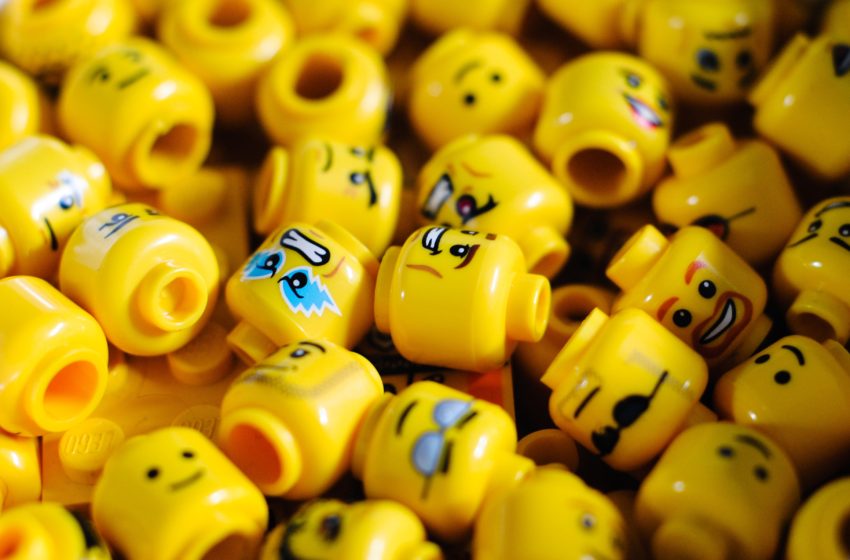This weekend, I had the privilege to be invited by Joy Hou, a Registered Psychologist based in Singapore, to be part of a free workshop led by her as part of the BRIM festival 2019 (In support of SkillsFuture Festival 2019). Joy shared with the audience on the the topic of “Mental Well-being for Personal Mastery”. Using her interactive and engaging facilitation style, she introduced the PERMA model as a framework to achieve better mental well-being. Her sharing inspired to me to reflect on the PERMA model and its relevance to LEGO SERIOUS PLAY in this post.

What is PERMA?
The PERMA model was first designed by Positive Psychologist Martin Seligman (author of Learned Optimism: How to Change Your Mind and Your Life), which is an acronym that stands for Positive Emotions, Engagement, Relationships, Meaning and Accomplishment. He proposed that these five main elements are the building blocks for psychological well-being and happiness. Can we relate the PERMA model to the process of LEGO SERIOUS PLAY? On many levels, it turns out that we can use the model as a basis to explain why LEGO SERIOUS PLAY is often seen as a effective facilitation tool for working with both individuals and organizations. Let us now look at how each individual component of the PERMA model can be applied to the LEGO SERIOUS PLAY methodology.
Positive Emotions
Positive Emotions refer to the ability to be optimistic and view the past, present and future in a positive perspective. It goes without saying that playing with LEGO bricks evokes joy in both children and adults alike. This is probably attributed to the way LEGO bricks are designed – interlocking bricks that can be joined together in various combinations to produce different models, which is only limited by one’s imagination. The process of LEGO SERIOUS PLAY allows the participants to construct models and craft stories that elicit positive emotions and to link them to past, present or future with the help of metaphors that are articulated by the participants as they share their creations.
Engagement
When one is engaged, that person is able to learn, grow and nurture personal happiness and engage in activities that are perceived as interesting. In a LEGO SERIOUS PLAY session, each participant tends to enter a state of ‘flow’, where they enjoy the building process and the ability to build the models comes naturally (provided that the facilitator done a good job during the skills building segment of the workshop). Many participants found that time tend to pass by quickly when they are in the ‘building mode’ – which is another hallmark of being engaged and in the ‘flow’.
Relationships
LEGO SERIOUS PLAY is often seen as the method of choice when it comes to corporate team building sessions. While most team building games and activities can achieve the same outcome of fostering team cohesion, what sets LEGO SERIOUS PLAY apart as a facilitating tool is the fact that using LEGO as a medium to project thoughts and feelings is often seen as non-threatening to people, and hence people tend to be more open and forthright about expressing difficult or vulnerable thoughts through LEGO bricks. This in turn builds trust as people realized that they could connect with their team mates on a deeper level and discover things that they had not realized about their team mates previously. When their co-workers construct models and tap on the power of storytelling and symbolic metaphors to express thoughts and feelings, they are often willing put down hidden agendas and reveal parts of themselves that they could have choose not to reveal had they undergone conventional team building activities instead.
Meaning
Based on the principles of Positive Psychology, having a purpose and meaning to why each of us is on this earth is important to living a life of happiness and fulfillment. In other words, every one of us are predisposed to be intrinsically motivated to make a positive contribution to the world. This is aligned with The Self-Determination Theory of motivation (Ryan and Deci, 2000), which states that an individual becomes motivated to make positive changes when all the three psychological needs i.e. Autonomy, Competence and Relatedness are met. Engaging in LEGO SERIOUS PLAY allows the participants to tap on these three needs. The participants have free will and ability to decide on the model they are able to build, and as highlighted previously, they are also able to foster closer relationships while doing so. When the participants start to assign symbolic meanings for their models during the sharing phase, they often realize that they could relate the stories and meanings back to their own situation and would hence be empowered to live a more fulfilling life.
Accomplishment
Being accomplished often mean having goals and ambition in life which can help us achieve things and leave us with a sense of accomplishment. Before the start of each session, I have participants who express concern that they can’t build with LEGO Parts. However, after the facilitator got the participants to be acquainted with the bricks through skills building, that concern often fades away once they found that LEGO brick building was not that hard as they thought out to be. When the participants share their creations with other participants, they often do so with a sense of accomplishment. Often, participants are so proud of their creations that they could not bring themselves to dismantle their models and build a new one!
Together with the principles of Positive Psychology, I believe that serious play have the potential and power to transform individuals and organizations for the better, one brick at a time. How about you? I would love to hear your stories on how LEGO SERIOUS PLAY had impacted your participants in the comments below.
References
Ryan, R. M., & Deci, E. L. (2000). Self-determination theory and the facilitation of intrinsic motivation, social development, and well-being. American psychologist, 55(1), 68.
